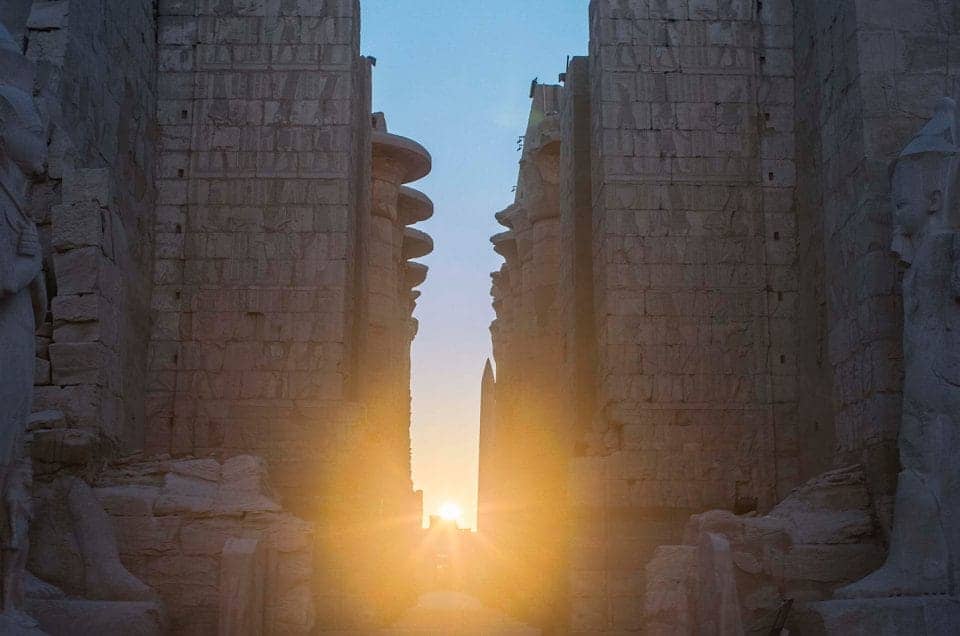
by Kenjuan Congo Jr.
There is a thesis claiming that all social, political and economic systems will be flawed because of the human element (mankind has innate defects). If this premise is accepted as true, it puts at question every social justice movement past, present and future. The potential ramifications this claim could have on humanity is existential; therefore it should not be taken lightly in any sense, or by any metric. But, is this argument true?
To test said thesis, we can conduct research and study to draw results that will ultimately lead to an objective and accurate conclusion. The question, does humans being flawed lead to systematic deprivation?, can be examined in the historical context. The Nile Valley Civilizations (Nubia, Ethiopia and Egypt) and the Western Sudanic civilizations (Mali, Songhai and Ghana) of continental Africa provide a very significant case study in regards to the aforementioned inquiry. For these states, spirituality was so prevailing that the connection between ethics and social relations were inseparable. The ancient Africans stressed the necessary balance between one’s individual and collective responsibility. This ethical grounding persisted in all social, political and economic interactions they had with each other. Engagement in every area of social life was seen as a moral undertaking.
King Unas of Egypt stated that he wished to be judged in the afterlife by what he has done on Earth. Unas affirmed that no one alive or dead accuses him nor does any beast or bird. He strove to live in harmony with both society and nature. The Declaration of Virtues were career and moral claims that evolved from a high ethical standard in ancient Egyptian life.
Mali’s most illustrious and well known emperor is Mansa (meaning emperor in Maninka) Musa. Musa is best known for his Hajj, or pilgrimage, to Mecca in 1324. On his trip, Musa gave gifts so generously that, when passing through Cairo, he gave out so much gold he depressed its price in Egypt. Musa also built many universities, including the University of Sankore at Timbuktu. Mansa Musa’s ethical approach compelled European scholars, traders and kings to give him recognition and respect. Charles V of France had an atlas drawn showing Rex Melli or Musa Mali wearing robes and a crown, holding a golden nugget in one hand and a scepter in another. The high moral standard of Mansa Musa guided him in all areas of social life.
King Unas and Mansa Musa are just two of many ancient Africans who used spirituality and ethics to guide all of their human interactions. There are a number of instances showing that kings used the Declaration of Virtues to reaffirm their commitment to morality. History shows that the Nile Valley and Western Sudanic Civilizations regularly engaged in intellectual, cultural, political, and other human pursuits founded, rooted and regulated by morality and ethics.
The theme of standing worthy before the people and nature in all areas of life is not just seen with ancient Africans, but all indigenous civilizations around the world. This is seen in the Pre-colonial Americas, the Asian Pacific, the Caribbeans and every other place of inhabitants. When looking at aboriginal societies, ethics was by no means the exception, rather the rule.
With colonization came the conquest of views, values and beliefs as well.
All indigenous societies have a common theme; a core belief of standing worthy before the people and nature. To them, being upright to humanity and planet meant to stand upright before God. The tradition of morality was an indispensable element when these humans came together. Based on immense evidence, the high ethical thought and practice of indigenous people around the world is irrefutable in the historical context.
Suddenly, the altruistic approach began to shift to what it currently is today. With colonization came the conquest of views, values and beliefs as well. Imperialism forced assimilation to their dominant culture from territory to territory, during the late 15th early and 16th centuries, instilling ideas that legitimized their rule. The idea that humans are born into sin and inherently evil was used by the church to justify their authority. Thus, the church was seen as an ethical ruler during European conquests.
Pope Alexander VI issued a papal bull (Doctrine of Discovery) in 1493 giving the people of color of the world and their resources to Portugal and Spain. Many bishops also blessed Italian planes and pilots on their way to bomb Ethiopia without provocation. In America, Christianity was used as moral reasoning for enslavement, as the church actively participated in the Black Holocaust. In Britain, during the 18th and 19th centuries, the state used the idea of inherently evil as well. The Royal Irish Constabulary played a pivotal role in the British’s oppressive agricultural system which produced poverty, famine and displacement. The state regarded itself as ethically fit to make decisions. At the same time, the marginalized were portrayed as lazy and obsessed with idleness. The state used these ideas to justify vagrancy laws that were designed to force productive labor.
During colonization, the church and state used the premise of the human being flawed to justify their moral authority to rule. By accepting said assumption, the power held by those who ruled would be legitimized. During that era of history, this belief was forced on the masses to reinforce dominance for those who held power.
Research raises the question: Does the claim humans are inherently flawed serve the establishment at the expenses of masses? If accepted, a consequence would be diminishing the willpower of socially marginalized people. But are the ruling class not human as well? Does this create a sort of double standard?
To put this into perspective, I presented a scenario to a group of prisoners. Let’s say someone breaks the law, and they go to court. After admitting they violated that particular statute, the person pleads not guilty. The defense argued is the human element. Because humans are naturally flawed, the defendant claims that he should not be guilty. Would this argument hold merit in the court of law? This is the same defense argued by those who rule. They claim humans being flawed will always result in deficiencies in governing, as if to mitigate their wrongdoing. While, at the same time, systems, legislation, law enforcement bodies and other extensions of the state hold the masses 100% accountable. Is this thesis laid before the masses as a sort of double standard between the average person and the elite?
The thesis claiming that all social, political and economic systems will be flawed because of the human element, has existential potential for mankind. Aboriginal communities around the world held the core belief that humans are responsible for bringing good and justice to the world. During the 15th and 16th centuries, colonizers began to erode the ideal of essentiality of service for the individualistic approach toward humanity and the planet. The premise that humans are innately flawed was used to legitimize state and church power; the rulers’ offenses were mitigated while the masses’ behavior was exacerbated. So, the thesis does not accurately take into account social and historical facts in their totality, and therefore must be concluded as incorrect. It is dismissed as a mere accusation that reinforces elitist rule.
Yes, we humans are fallible. This fallibility is not only integrated with our mental faculties but our institutional constructs as well. But, what is imperfect can be improved through trial and error. This is what it means to be human in the fullest sense of the word. It is not a question of social justice or the human element – Social justice is the human element.
Send our brother some love and light: Kenjuan Congo Jr., ND 7568, SCI Chester, Smart Communications/PA DOC, PO Box 33028, St Petersburg, FL 33733.
Prison Radio: Kenjuan Congo Jr
IG: @kjcongo3




